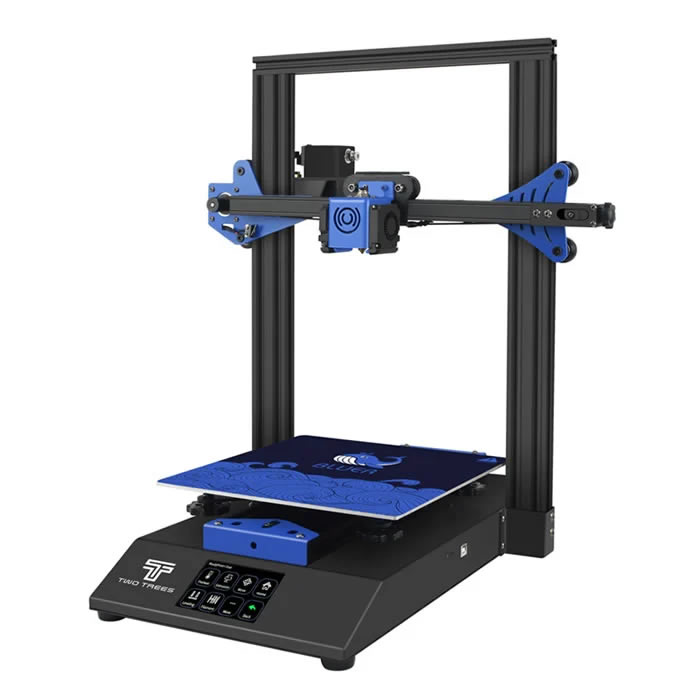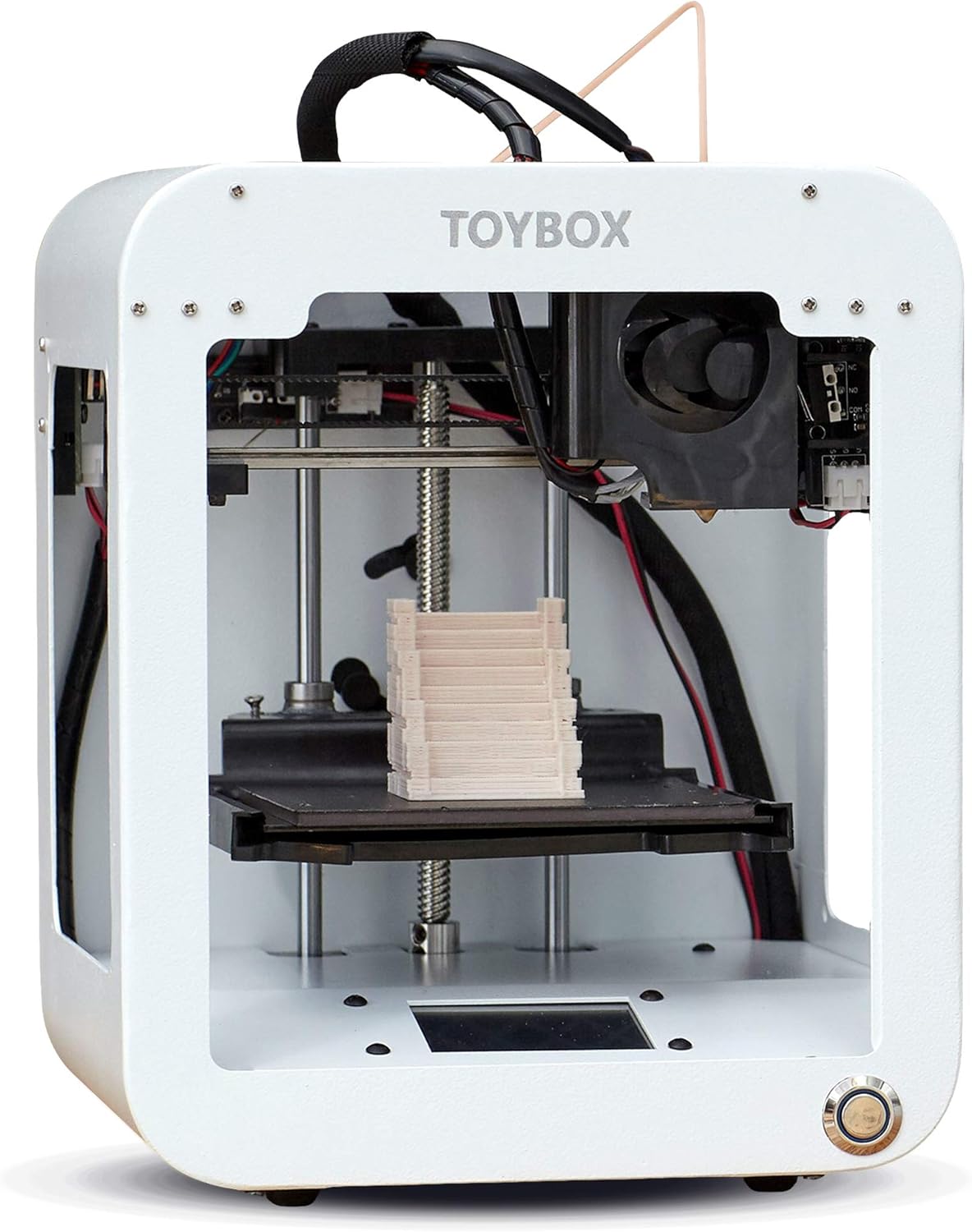Compare Bluer vs Toybox
Comparison between the best 3D printers
Choose the best 3D printer at the best price. The cheapest 3D printers are here.
Buy a 3D printer here with 3D Fila.
 |
 |
|
| Model | Bluer |
Toybox[BUY Toybox] |
| Printing Material | Filament | Filament |
| Buy Filament for TwoTrees Bluer | Buy Filament forToybox Toybox | |
| Estimated price | $169,00 | $299,00 |
| Manufacturer | TwoTrees | Toybox |
| Release Year | 2019 | 2024 |
| Print Volume [mm] | 230x230x280 | 70x80x90 |
| Printer Size [mm] | 400x410x520 | 190x190x230 |
| Weight [kg] | 8 | 3 |
| Power Loss Recovery | YES | NO |
| Enclosed printer | NO | NO |
| Bed Leveling | Manual | Manual |
| Filament End Sensor | YES | NO |
| Bed type | Heated | |
| Power supply system | Bowden | Direct Drive |
| Standard nozzle | 0,4 | 0,5 |
| Maximum Nozzle Temperature [°C] | 260 | 210 |
| Maximum Bed Temperature [°C] | 100 | |
| Maximum printing speed [mm/s] | 200 | 60 |
| Filament holder | YES | YES |
| Camera for supervision | NO | NO |
| Recommended filaments | PLA, PETG | PLA |
| Recommended slicers | Cura, Simplify, Slic3r | Toybox |
| Maximum Resolution [mm] | 0,1 | 0,2 |
| Processor | MKS Robin Nano V1.2 + TMC2208 | |
| Display | Touchscreen TFT 3,5'' | Touchscreen 2,4'' |
| Power Supply | 240W | |
| Connectivity | SD / USB | Wi-fi |
| Operating systems | Windows, Mac, Linux | iOS, Android |
| Date of registration in the system | 2021-09-20 | 2024-08-06 |
| Release date | 2019 | 2024 |
| Extra features | The Bluer offers interesting features such as automatic bed leveling, a 3.5-inch color touchscreen for easy operation, and a filament sensor to prevent print failures. It has a robust metal extruder and a generous 230 x 230 x 280 mm print volume, suitable for a variety of projects. The community mentions improvements made by Two Trees based on feedback, increasing its reliability. | The Toybox 3D printer is an excellent option for children and beginners. Easy to use, with intuitive setup and simplified operation via an app. The Toybox allows you to print thousands of toys and projects through a user-friendly interface. It has a removable magnetic table that makes it easy to remove printed objects. The filament is PLA, safe for children, and the printing is reliable and error-free. It also offers custom design options, allowing you to create and print drawings and photos. |
| Support for multiple colors and materials (AMS and CFS) | NO | NO |
Notes * |
||
| Cost-benefit | 7 / 10 | 6 / 10 |
| Hardware | 2 / 10 | 0.8 / 10 |
| Tela | . | . |
| Print volume | 3 / 10 | 3 / 10 |
| Performance | 2 / 10 | 0 / 10 |
| [BUY Toybox] |
Conclusion |
| In comparing the TwoTrees Bluer and the Toybox 3D printers, several factors highlight their key strengths and weaknesses for potential buyers. The TwoTrees Bluer stands out as a more versatile and capable printer, offering a larger print volume, higher maximum nozzle and bed temperatures, and faster printing speeds. Its features such as power loss recovery and a filament end sensor enhance reliability during longer prints, making it suitable for more advanced users seeking to tackle a wider variety of projects. Additionally, its compatibility with multiple slicing software provides users flexibility in their workflows. On the other hand, the Toybox is geared towards a more specific audience, particularly children and beginners. Its intuitive app-based interface and focus on ease of use make it an excellent choice for educational purposes and simple toy printing. The removable magnetic print bed simplifies the process of object retrieval, which is a notable advantage for younger users. However, it comes with limitations in terms of print size and material compatibility, making it less suitable for more complex or demanding projects. In terms of cost-benefit analysis, the TwoTrees Bluer appears to offer better value for its price, given its advanced features and capabilities. The Toybox, while slightly more expensive, is a niche product aimed at a particular user demographic, which explains its pricing structure. In conclusion, if you seek a more powerful, feature-rich 3D printer with broader usability, the TwoTrees Bluer is the preferable option. Conversely, if your primary focus is on ease of use, safety, and a fun introduction to 3D printing for children or beginners, the Toybox is a solid choice. Ultimately, your decision should depend on your specific needs, skill level, and intended use. |

